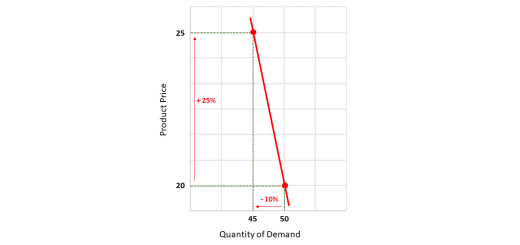Advantages and Disadvantages of Bonus Issue
Understanding Bonus Issues
Bonus shares are additional shares offered to the existing shareholders without any additional cost. The number of these additional shares is based on a common multiplication of the number of shares owned by each shareholder.
Bonus shares are considered a substitution when the company can not pay dividends to the shareholders.
Bonus Issue Calculation
The number of additional shares received by the shareholder in a bonus issue is usually based on the number of shares already owned by him/her.
If the company decided to offer a one-for-five bonus issue, then the existing shareholders get one new share for every five shares they own. If a shareholder owns 1000 shares previously, after the bonus issue the number of shares will become 1,200 (1,000 existing shares + 200 bonus shares).
Advantages (Pros / Positives / Benefits) of Bonus Issue for the Company
1. Increasing the total number of shares results in the participation of small-scale investors. This will have an advantage that enhances the liquidity of overall shares.
2. The bonus issue is an alternative to paying dividends. The company can save the dividends to invest in profit-generating activities, which will be an advantage for the company’s growth.
3. The bonus issue provides positive signals to the market. The market can believe that the company has the potential for long-term growth.
4. Bonus share issue boosts the issued share capital of the company. Also, the company’s total number of shares will get increase after the bonus issue. This can provide a perception to the market in which the company’s size is larger than before.
5. Additional shares issued with a bonus will result in lowering share price. This will make shares more affordable to investors.
Advantages (Pros / Positives / Benefits) of Bonus Issue for the Investors / Shareholders
1. A bonus issue is a good way to give back to the investors/shareholders if the company is low in profit/cash. This will satisfy the shareholder’s desire for a dividend, in which shareholders have the option to sell the additional shares received.
2. Investors who believe in the company’s long-term goals can see this as an opportunity to increase their investment by retaining the bonus shares (without selling the additional shares).
3. Bonus shares provide additional income to shareholders. Investors do not have to pay any tax on receiving bonus shares, compared with receiving dividends.
4. When the company pays cash dividends in the future, the investors who retain their bonus shares will receive more dividends, since they hold more shares.
Disadvantages (Cons / Negatives / Drawbacks) of Bonus Issue for the Company
1. Administration expenses of a bonus issue are more than the expenses that occurred in paying dividends. There is doubt that is this beneficial for the company to pay such an expense for a bonus issue.
2. Bonus issue results in an additional number of shares in the company. This will decrease the future Earnings Per Share and Dividend Yield. This will provide a negative impact on the market regarding the investment attractiveness of the company.
3. The bonus issue simply means issuing new shares to the existing shareholders, despite the improvement of cash. This reduces the company’s ability to raise money through follow-on offerings.
Disadvantages (Cons / Negatives / Drawbacks) of Bonus Issue for the Investors / Shareholders
1. Even though it says the bonus issue is an alternative for paying dividends if the investor sells their bonus shares, the percentage of share ownership will get reduced. Investors will not like to get their percentage of stake reduced to get a cash benefit. This will result in investors negatively having less control and voting power over the company.
2. Bonus issue results in increasing the total number of shares. The extra shares issues will eventually reduce earnings per share (EPS) which will dissatisfy investors.
3. Investors will not get any extra wealth or cash in bonus issues. Even though investors receive the extra amount of shares, the share price will proportionally reduce, which will result in the same level of wealth for the investors as before.
Bonus Issues Example
Example for Bonus Issue: the company decides to offer a two-for-five bonus issue. This means the existing shareholders get two new shares for every five shares they own.
- If John owns 2,000 shares before the bonus issue, then John will get 800 bonus shares (2,000 x 2/5).
- If Alex owns 50 shares before the bonus issue, then Alex will get 20 bonus shares (800 x 2/5).
Saudi Telecom and Hong Fok are some global companies that conducted bonus issues. The below article contains real-world examples of the bonus share issues,
Types of Bonus Issue
Bonus issues are classified into two types,
- Fully Paid Bonus Shares
- Partly Paid Bonus Shares
1. Fully Paid Bonus Shares
Fully paid bonus shares are when the shares are distributed at no additional cost, in the stake of the investor’s holding in the company. This simply means investors will get the extra shares without any cost.
Fully paid bonus shares can be issued in the sources of profit and loss account, capital redemption reserves, capital reserves, and security premium account.
2. Partly Paid Bonus Shares
A partly paid bonus issue means the investor can buy the additional shares without paying the total issue price. The remaining amount for partly paid shares can be paid in installments based on the decisions made by the company.
Stock Splits versus Bonus Shares
Stock splits and bonus shares are two different types, but both have similarities and differences as below.
A stock split is a finance method to divide each company’s stock into a particular number. After the stock split, the number of shares of that company increases, but the market capitalization (company net worth) remains the same.
There is no improvement or reduction in the company’s cash reserves in the stock split. But the shares are paid for out of the cash reserves, and the reserves deplete in bonus issues.
Key Summary
1. A bonus issue is an additional share issue by a company, which can be treated as a substitute for cash dividends. Shareholders can sell the shares to meet their liquidity needs.
2. Bonus shares raise a company’s share capital but not its net assets.
3. The ex-date is one day before the record date. An investor should buy the shares at least one day before the ex-date to be eligible for a bonus share issue.
4. If shareholders own the company shares before the ex-date and record date, then these shareholders will be eligible to receive bonus shares from the company.
5. Bonus share issues should recommend by the resolution of the Board of Directors. This recommendation should be later approved by the shareholders of the company in the general meeting.
Learn More with LearnBusinessConcepts.com
- Initial Public Offering (IPO): Explanation, Steps & Examples
- Advantages & Disadvantages of Initial Public Offering (IPO)


